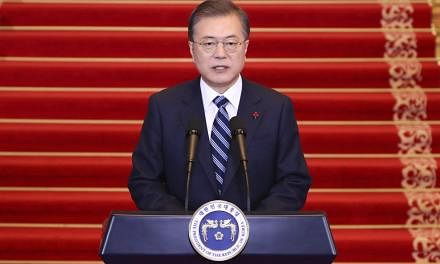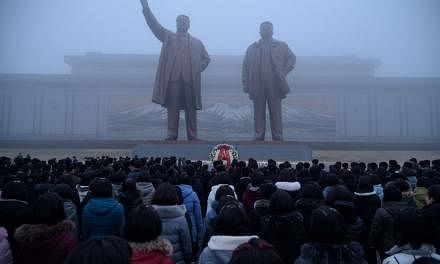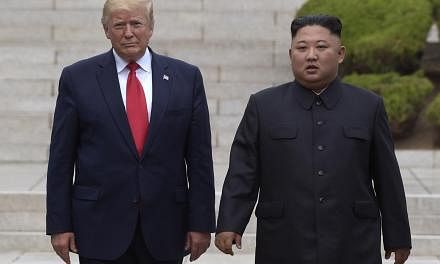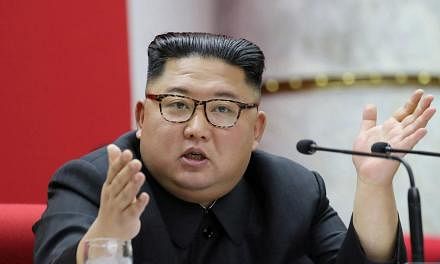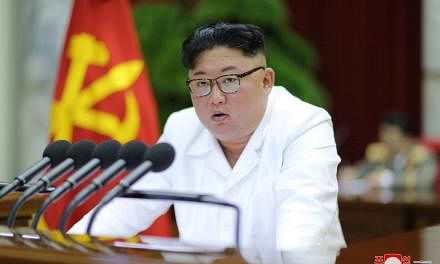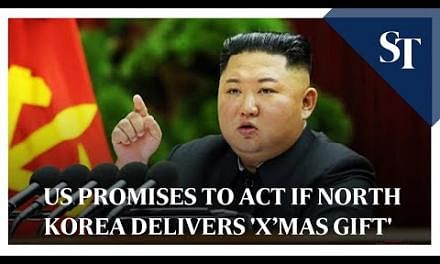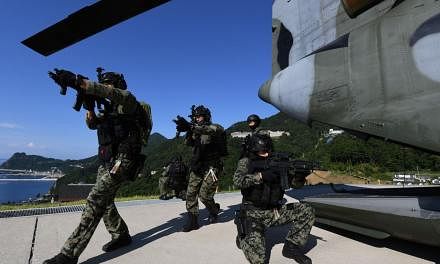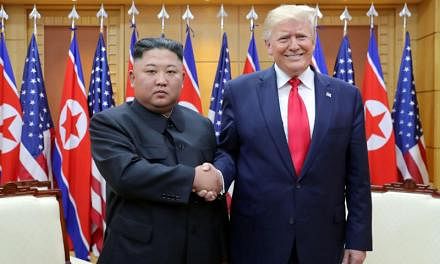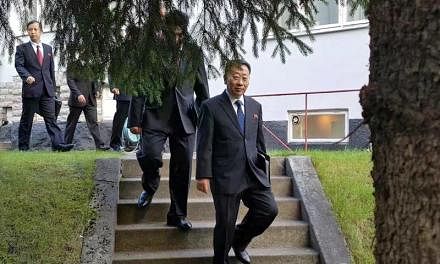TOKYO • When US President Donald Trump sits down to talk peace with North Korean leader Kim Jong Un later this month, one of America's closest allies - Japan - will be looking on with apprehension.
Like the first time Mr Trump met Mr Kim last June, Japanese Prime Minister Shinzo Abe has found himself on the outside peering in before their second summit set for Feb 27-28 in Hanoi.
The meeting brings both the promise of a less-dangerous North Korea and the potential peril of a weak deal that leaves Japan exposed to Mr Kim's weapons of mass destruction and does nothing to help ease Tokyo's own hostile ties with Pyongyang.
Mr Mitoji Yabunaka, who served as Japan's envoy to six-party talks with North Korea more than a decade ago, said the country feared "a half-baked, deceptive agreement which leads to the Trump administration taking a soft line on North Korea by removing economic sanctions" without serious progress on disarmament. That would be "the nightmare scenario", Mr Yabunaka said.
While Japan and the United States - which guarantees the country's security under a 1960 treaty - both want North Korea to give up its weapons, their interests could diverge as talks progress.
Mr Kim's short-to medium-range rockets pose the most immediate danger to Japan, not the intercontinental ballistic missiles (ICBMs) that now threaten the American homeland.
Moreover, Mr Trump's unilateral decision to grant Mr Kim's request to suspend US' joint military exercises with South Korea during their first summit has raised concerns about a potential American pull-back after the second.
The presence of some 28,500 American troops on the peninsula provides Japan with a valuable buffer against a rising China, as well as North Korea.
Meanwhile, Mr Abe's efforts to build a personal rapport with Mr Trump - even recommending him for the Nobel Peace Prize, according to the US President - have shown their limits.
Mr Trump has accused Japan of falling short on troop payments, withdrawn the US from a shared Pacific trade pact and imposed tariffs on the country's metals exports on "national security" grounds.
Japan was also forced to accept bilateral trade talks with the US after Mr Trump threatened similar tariffs on its vital auto industry.
There have been no calls or meetings between Mr Trump and Mr Abe since Nov 30, according to the Foreign Ministry website.
By contrast, they met twice and spoke by phone five times in the three months leading up to the first Trump-Kim summit in June last year, including calls the day before and on the day of the meeting.
Japan plans to invite Mr Trump in May so he can be the first state leader to meet the country's new emperor, according to the Sankei newspaper. The visit will include a golf excursion with Mr Abe, the newspaper said, citing unidentified people familiar with the bilateral relationship.
In Parliament yesterday, Mr Abe praised Mr Trump for acting "decisively towards resolving the issues of the North Korean nuclear and missile problems", while declining to say whether he nominated the US leader for the Nobel prize.
Earlier this month, Mr Abe told lawmakers that he wanted to speak to Mr Trump before the summit.
Former chief South Korean nuclear negotiator Chun Yung-woo has said Japan and his own country share an interest in making sure the North Korean regime gives up all its fissile material.
"Just eliminating ICBMs could be perceived as a US-first policy at the expense of Japan and Korea," Mr Chun said. "That would be very bad. Japan has to make sure that denuclearisation doesn't end there."
BLOOMBERG
